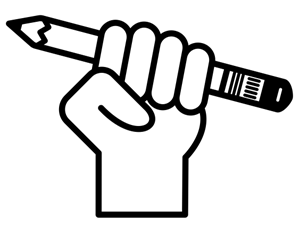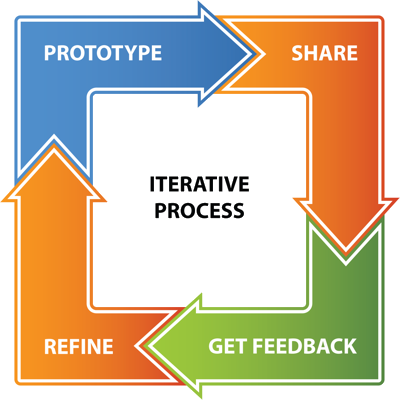PubWriter Manifesto

In the future, the eBook you are reading will by 'live.' By live, I mean dynamic. By dynamic, I mean that what you read will always be the most current version of the work. Because eBook readers of the future will be always connected, anytime the author updates the eBook, the reader will see the most current version. The reader will be reading the words nearly as quickly as the author types them!
This will collapse writing and publishing into one, and the work will published the moment the author hits the 'save' button.
The ideas that get you out of bed at 4AM are the ones worth pursuing.
In a sense, eBooks will mirror the SAAS (software as a service) model. Readers will buy access to the creators work, and they will always be reading the most recent version of 'the work.' Books will be sold by the title, but also sold by the author.
This model benefits both the author and the reader, by ensuring that the version being read is the most recent version. The only exception being when a reader decides to print a pubwriter page or create a PDF. But the readers know that any edition of the work other than the live edition isn't necessarily correct. The reader benefits from knowing that the author has control of the words being written.
The benefits to the author is that they don't need to think about publishing. Publishing of their work occurs the moment they hit save.
The author is the only authority of their own work. You could certainly argue that they may not be 'the' authority on the topic they are writing about, but you can't argue that they are the authority on their own words.
In fact, the author them self can become the book. Because authors will become branded, and readers will be less concerned with a particular title from that author, and more interested in reading the latest words from the author.
This is good news for bloggers. The bloggers of today will be the authors of tomorrow in the era of PubWriter. You publish what you write, and what you write is published.
This is bad news for traditional publishers. In this new model, the publisher is no longer needed. There's just the reader and the author.
What you write is also fluid, meaning an update can occur any moment the author determines it's needed - and he/she can be assured that the version of the work the readers have will always be the current version.
First editions, second editions, etc... are an artifact of the past. In this new era, there is only one edition - the live edition.
How authors of the future will get paid.
You know how you become a professional speaker (defined as someone who is paid to speak)?
You speak for free until someone offers you money.
You speak for free but sell other products to give the audience something of greater value than your talk alone.
Making money with PubWriter for an author will occur the same way. Within their writing, they have the option to provide readers with the opportunity to make a purchase. The purchase (an exchange of money for value) might be achieved in any create way, such as:
- The reader provides their email address (a valued asset for any author).
- Leaving a tip or offering the reader to make a donation.
- Purchase a course or book that goes into more detail on the topic.
- An affiliate link where the author gets a commission on a recommended products.
- A paid advertisement that interrupts the flow of the content.
- Hire the writer to coach the reader on the topic.
- Invite the writer to a paid speaking event.
and many more creative ways... yet to be discovered!
Emily Dickinson
"While Dickinson was a prolific private poet, fewer than a dozen of her nearly 1,800 poems were published during her lifetime. The work that was published during her lifetime was usually altered significantly by the publishers to fit the conventional poetic rules of the time. Dickinson's poems are unique for the era in which she wrote; they contain short lines, typically lack titles, and often use slant rhyme as well as unconventional capitalization and punctuation. Many of her poems deal with themes of death and immortality, two recurring topics in letters to her friends. Although Dickinson's acquaintances were most likely aware of her writing, it was not until after her death in 1886—when Lavinia, Dickinson's younger sister, discovered her cache of poems—that the breadth of her work became apparent to the public. Dickinson is now almost universally considered to be one of the most significant of all American poets."
If Emily Dickinson were alive today, I would want a tool like PubWriter to be part of her arsenal. I can only imagine the potential reach she would have while she lived!
I have written over a thousand shorts. The vast majority of them is what I'd refer to as 'beta writes.' Unfinished and still in 'writing-in-progress' with some editing, rework and proofing to be done. It's a glimpse into the mid-point of my writing workflow - the phase between unfinished and finished, between unpolished and polished work. Readers input is a valuable part of the iterative writing process:

Prince
Prince is said to have thousands of unpublished songs, because they are what I would classify as his 'beta' work. I've read that he wrote a song/day. Is there any better way to hone your skills? I am sure some of those are so short they would hardly constitute a song and much of it was just practice. He was a creative genius. If his song writing technique is similar other songwriters, you will hear the influences of whatever he was listening to at the time he wrote the song. I would even speculate that a lot of his unfinished work that he never released is too close to the work of others. We ALL pull our ideas from somewhere. Perhaps it was from his own music, which makes me contemplate the idea that the more we create, the more we can pull from our own creations for inspiration.
Prince was also highly protective of this 'unpublished' work, likely because we never wanted us to hear anything less than his best!
Vincent van Gogh
The backstory of Vincent van Gogh is similar. He painted over 2,000 paintings in just 10 years. And while hundreds went on to become invaluable works of art, many more would be considered 'practice.'
PubWriter provides writers with an ultimate canvas for unfinished work. It's my beta writing, and it's often influenced heavily by something I'm reading.
Andy Weir
PubWriter was inspired by Andy Weir, author of The Martian who published his book on his own website, exposing him to thousands of readers which ultimately landed him a very lucrative book/movie deal.
Collaborative PubWriting is possible when using a shared Sync folder, which makes sense if you are working with an editor. The changes will be reflected anytime the editor or the author makes a change, so you may want to come up with some ground rules on who is working on the document when.
Are you ready to jump in and become part of the evolution in publishing? In the months ahead, we'll be expanding PubWriter and we'd like your input to shape the future of PubWriter!